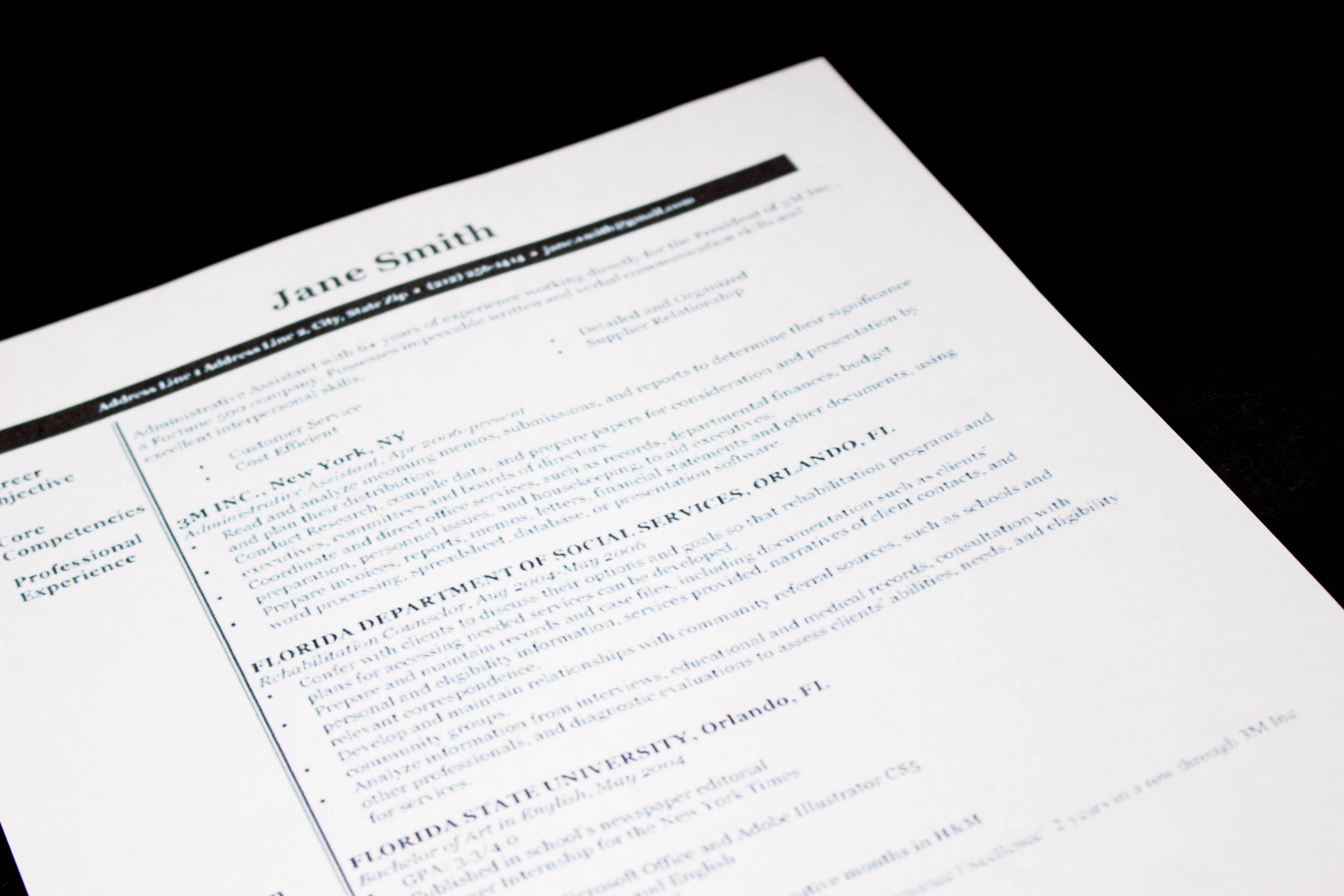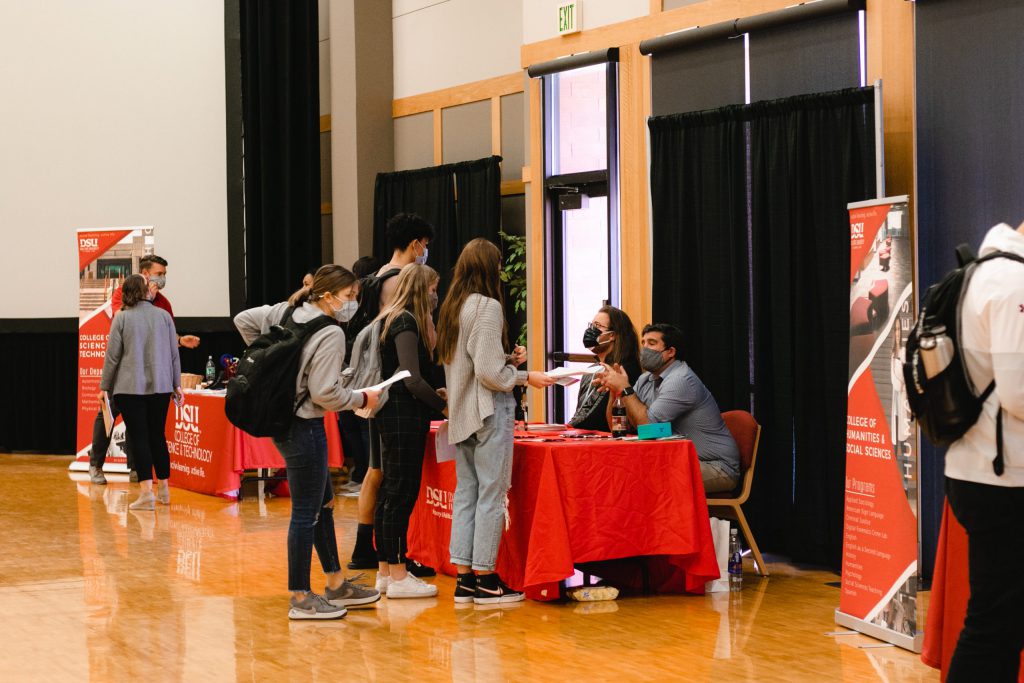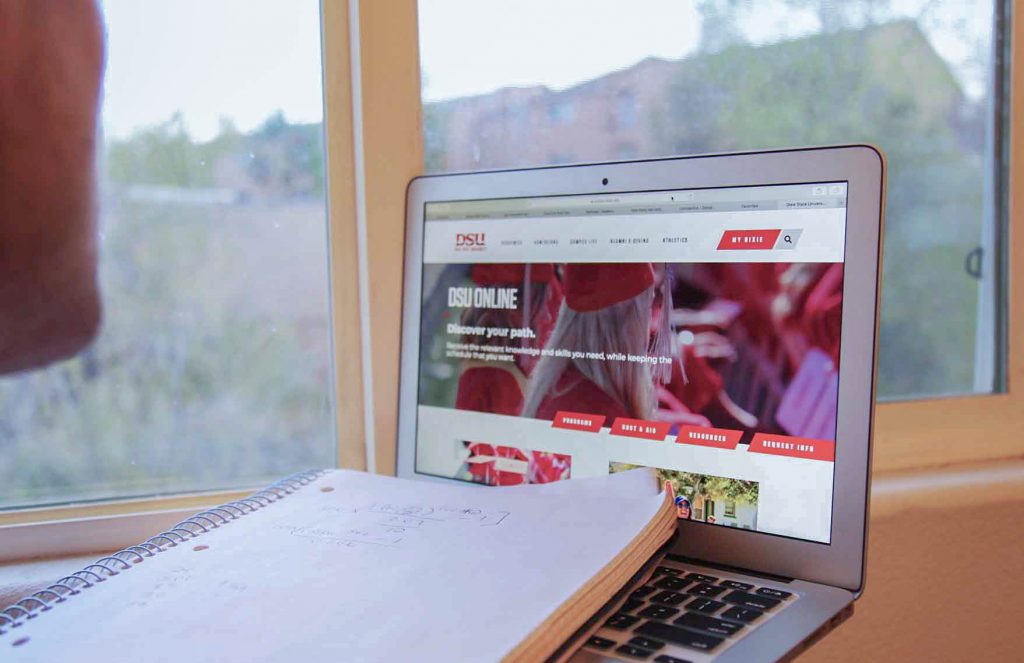No matter the experience, resumes can make or break a student’s chance at a new job.
For this reason, Dixie State University offers multiple resources for students to take advantage of at no cost. Experts at the Career Center and academic advisers are available on campus to help students craft the perfect, one-page outline of their education, employment and experience history.
Career coach Rochelle Blatter is one of the staff members available to help students in the Career Center. After scheduling an appointment, or dropping in when someone is available, career coaches first pull out sheets with format ideas and action verbs to help narrow the scope of what needs to be done.
“The biggest thing for students to know is [the resume] needs to be one page, and it needs to be really clear with simple format, so you don’t need to worry about the boxes and the fancy things if that’s not something you can do,” Blatter said.
Blatter said another aspect of resumes students often overlook are typos and small grammatical mistakes that can reflect poorly on them in the eyes of a prospective employer.
“[A resume] is about the content, the format and being able to show your skills and strengths in the best way you can,” Blatter said.
Blatter said there are many different types of resumes depending on what each student wants to highlight. No matter what is being highlighted, most of the resume should consist of a student’s education and experience, Blatter said.
In the past, students have put objectives, a personal branding statement, or a profile or personality summary, but Blatter said as the times are changing these aspects are optional.
Paragraphs, often times, are harder to read when compared to bullet points, Blatter said, and therefore better for resumes.
“I always tell students to prioritize,” Blatter said. “Kind of think that employers spend 30 seconds on a resume, so whatever you want them to see first [should be closer to the top].”
Deborah Decker, assistant director of advisement, said advisers are available for students to help them decide what is important and sometimes uncover students’ hidden strengths.
“[Advisers] can help students to translate their experiences and classes into skills and strengths,” Decker said. “Sometimes it can be tricky to articulate what you have gained and put it down in black and white.”
Blatter said it’s important for students to remember they don’t have to put everything on their resumes, and although bullet points are more helpful it’s best not to put more than 10. Action verbs also help students look more appealing to employers, Blatter said.
Starting points with created or managed is better than simply stating “good communication,” Blatter said. She also said talking about results with quantitative adjectives can give students the leg up on potential competition; using phrases like “supervised employees” can be improved by using a number, such as “supervised 10 employees.”
“Even if it was ‘wait on tables,’ [students] can put how many customers they would see,” Blatter said. “Anything they can do that way helps as well.”
Blatter said, at the end of the day, making resumes clear and concise is best from each candidate as most employers will never see the resume until after a computer looks over it to detect certain necessities.
“Some really large companies, like Goldman Sachs, a human actually never sees your resume, [instead] it’s scanned through a computer,” Blatter said. “So when you do a lot of bold and boxes and lines sometimes that’s going to catch it and it won’t be able to read it.”
To avoid being thrown out of the candidate pool by a computer, students should tailor their resumes to the job they are applying for, Blatter said, because most jobs are looking for particular skills.
Social science students, particularly those in the psychology and sociology fields, who want to apply for graduate schools have a much more intensive resume called a curriculum vitae, or CV.
Academic Adviser Craig Demke helps students in psychology and applied sociology create roadmaps to graduation, find research experience and help students utilize resources accessible to them.
“Of course internships should be included [on CV’s],” Demke said. “[DSU] has classes that offer research experience and class credit, so [students should] definitely include those.”
Demke said the largest mistake students make with CV’s is including all classes on their CV’s and often forgetting a CV is usually followed by a transcript. For more help, Demke said students should reach out to him for help with CV and if he is unable to help he can point students in the right directions.
No matter the focus or major, Blatter said a good resume or CV will take many revisions and proofreaders. Blatter said students should ask their friends and roommates to look over their resumes to find typos, grammatical errors or just to lend a new perspective.
“[Advisers] can also be a discerning eye that give you feedback of how your resume looks to a third party,” Decker said.




